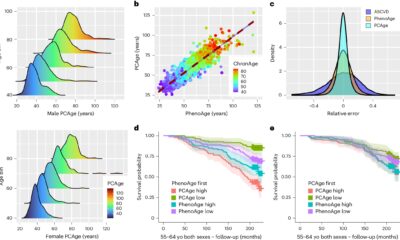Business
Homeowners under pressure are opting for longer mortgage terms

As interest rates rise, homeowners facing the end of their mortgage agreements are seeking relief through extended loan terms.
Industry association UK Finance reports that 24 percent of refinances, around 5,400 loans, in December were structured with terms of 30 years or more, a significant increase from 11 percent in December 2021.
The surge in demand for longer mortgage terms comes as millions of homeowners struggle with the aftermath of interest rate increases. Since the Bank of England’s base rate rose from 0.1 percent in 2021 to 5.25 percent today, borrowers who once enjoyed interest rates of 2.5 percent or lower are now facing significantly higher payments. According to financial data firm Moneyfacts, the average two-year fixed rate deal is now 5.81 percent, while the average five-year fixed rate is 5.39 percent.
With around half of homeowners with mortgages witnessing the end of their deals amid base rate fluctuations, the financial pressure is palpable. For example, Santander customers are struggling with an average monthly increase of £220 after refinancing their mortgage, as highlighted by CEO Mike Regnier during recent parliamentary discussions.
To illustrate the impact of interest rate increases, consider a scenario where a homeowner took out a £200,000 25-year mortgage two years ago at an interest rate of 2.5 percent. Despite reducing the loan balance to £188,187 in two years, the interest rate rise translates into higher monthly payments. For example, with an interest rate of 5.81 per cent, monthly repayments over the remaining 23-year term would rise to £1,238.
In response, homeowners are turning to extending their mortgage terms to soften the blow of higher interest rates. Extending the term to 30 years would reduce monthly payments to £1,106, while for a 35-year term they would be reduced to £1,049. Mortgage broker Katy Eatenton notes that term extension has become a primary strategy for borrowers navigating the current interest rate environment.
While extending the term provides short-term relief, it comes at a cost in the long term. Comparing a 23-year term with a 35-year term, total repayments jump from £342,601 to £441,764, despite the interest rate increase.
Despite these challenges, the share of loans in arrears rose only slightly to 1.1 percent at the end of last year, according to the Bank of England, indicating a resilient market amid economic turbulence.













